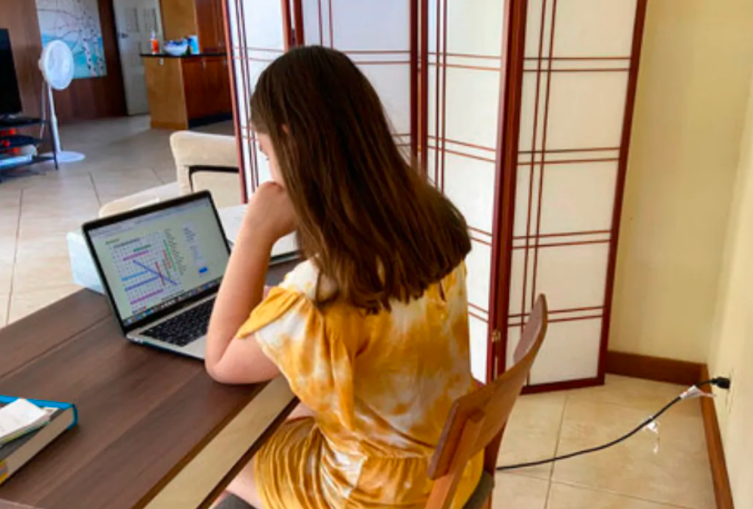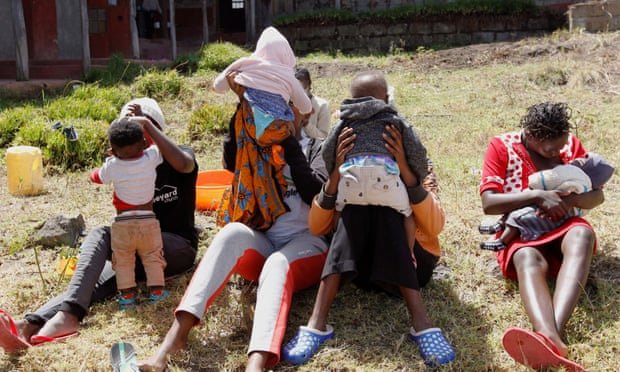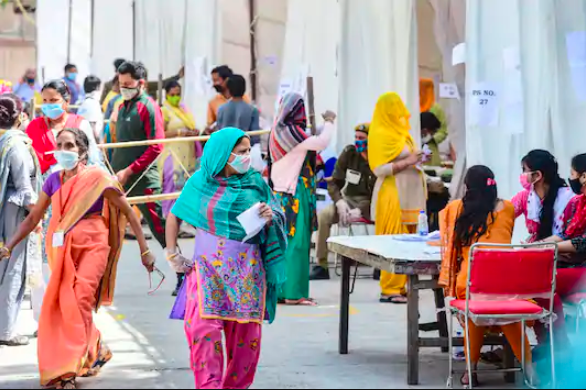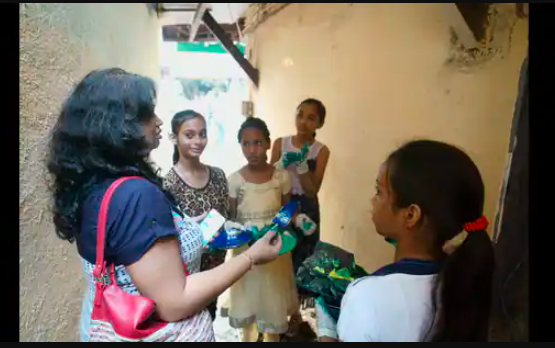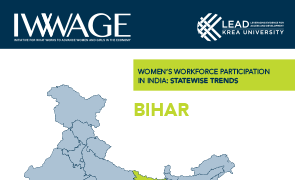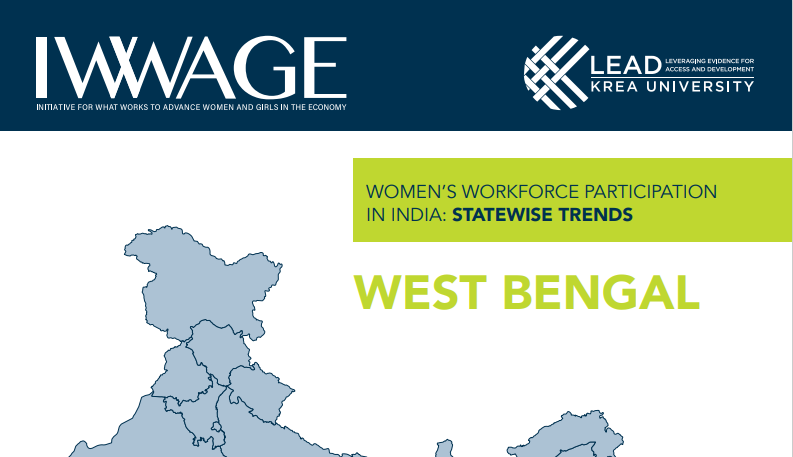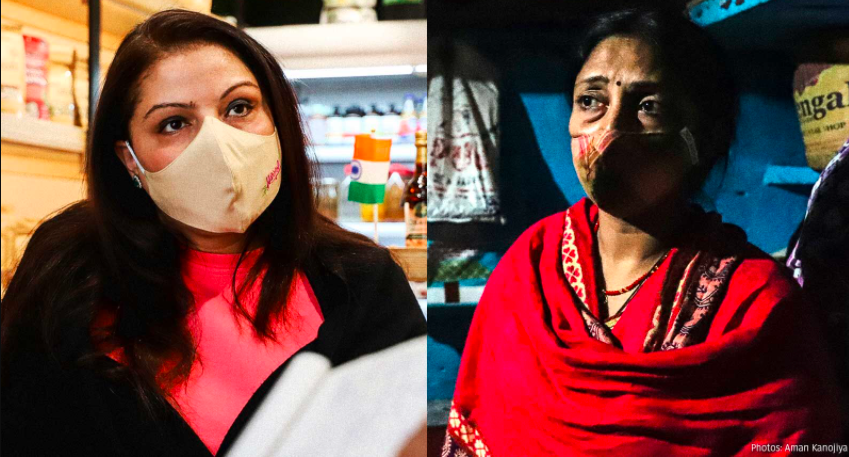IWWAGE-Institute for What Works to Advance Gender Equality
Covid childcare crisis reversing decades of women’s economic progress – report
The childcare crisis is at a “tipping point”, threatening to reverse decades of women’s economic progress, according to a new report published on Monday.
The report warned that the female-dominated childcare sector risked collapse, as coronavirus lockdowns and rising poverty levels had led to a “steep drop” in demand for formal and informal services.
Balancing paid and unpaid care was particularly hard for poorer women working in the informal sector, which offered no paid leave, social protection, or the chance to work remotely, said the report, published by the International Development Research Centre, the Growth and Economic Opportunities for Women East Africa initiative, the Bill & Melinda Gates Foundation, FemDev and the Initiative for What Works to Advance Women and Girls in the Economy.
The Covid pandemic had exposed the extent to which childcare falls on women, who are on average now spending more than 30 hours a week looking after children, it said.
“A year into the pandemic, we are no longer just worrying about progress on women’s equality coming to a standstill. We’re now seeing the possibility of such progress being reversed. The devastating impact that Covid-19 has had on women’s livelihoods cannot be overstated,” it said.
“The childcare crisis is at a tipping point. Childcare must be addressed within our Covid-19 recovery plans both to advance gender equality and because it makes fiscal sense.”
Anita Zaidi, president of the Gates foundation’s gender equality division, said poverty levels among women had been expected to drop by 2.7% between 2019 and 2021. “But actually now it looks like poverty for women will go up by 9%. That’s almost 50 million more women globally in poverty,” she said.
The closure of childcare centres could be devastating. “Women who want to come back into the labour force cannot, because those childcare centres don’t exist. Many women have to go to work, otherwise they have nothing to eat and they don’t have shelter, so what they are then doing out of desperation is their older girls are not going back to school and have to look after the younger kids so mum can work,” she said.
Childcare provider Kidogo estimates that about 60% of families in Kenya who were previously using its centres have shifted care responsibility to girls as young as eight.
Zaidi said childcare should be subsidised and needed to be regarded as a societal issue, not a problem for women to solve. “Childcare is a critical barrier to women’s labour force participation and with women not participating in the labour force economies will not progress,” she said.
Last week, the UN Development Programme (UNDP) called for the “immediate introduction” of a temporary basic income to ensure women who face the harshest economic impacts of Covid-19 are able to survive the pandemic. A monthly investment of between 0.07% and 0.31% of developing countries’ GDP could lessen the impact of the pandemic for up to 2 billion women, it said.
Women’s Workforce Participation In India: Statewise Trends
Bihar has the lowest female workforce participation rate (FWPR) among all states at 2.8 percent. The decline in FWPR has been shaper in rural areas as compared to urban areas, pushing a large number of women out of the workforce since 2007-08. With the decline in women workforce, there has been a substantial increase in the share of women in regular employment, in line with the national trend, and a significant decline in the share of self-employed, which is greater than the decline observed at the all India level. Women’s self-employment in Bihar is characterised by high incidence of own account work and low share of unpaid work, in contrast with all India figures.
Women’s Workforce Participation In India: Statewise Trends
Women’s labourforce participation rates (LFPR) reveals some interesting trends for Maharashtra. As per the figures from the labourforce surveys, the LFPR is significantly higher than the all-India figures, largely driven by higher than average rural employment. The state also shares a decline in self-employment and casual employment and a shift towards regular wage work for both rural and urban women. In Maharashtra the urban areas witnessed a consistent rise in regular wage work of women since 2004-05. More than 60 percent of women are employed as regular workers – 70 percent of which is concentrated in the services sector such as education, health and retail. In rural areas, the share of casual workers is considerably higher at around 42 percent, followed by 52 percent in self-employment. The incidence of unpaid family workers among self-employed women exceed 80 percent. While the urban areas show considerable diversity of women workers across occupations and sectors, women in the rural areas remain concentrated as manual workers in agriculture or within construction work.
Women and Unpaid Work
Women’s workforce participation in India has been consistently low-and steadily declining over the last 15 years, as recorded by official surveys like those conducted by the National Sample Survey Office (NSSO) and the Periodic Labour Force Survey (PLFS). However, these numbers fail to capture the full extent of women’s economic contributions, largely because they exclude unpaid work-domestic chores, caregiving, and community roles-that women perform on a daily basis.
Feminist scholars have long advocated for the recognition, reduction, and redistribution of unpaid work as essential steps toward achieving gender equality. If the definition of work is expanded to include these invisible activities, it becomes evident that many more women are contributing to the economy than current statistics suggest.
The COVID-19 pandemic further exacerbated these inequalities. As homes transformed into sites of both work and survival, women’s unpaid workload increased significantly. A Rapid Assessment Survey conducted by the Institute of Social Studies Trust (ISST) in Delhi found that women in urban informal sectors-such as domestic work, waste picking, street vending, and construction-reported a significant rise in unpaid responsibilities, including childcare, eldercare, and food provisioning. Despite other family members being at home, women continued to shoulder the majority of domestic work, often with little or no help.
To build a more inclusive and equitable economy, it is critical to recognise and value unpaid labour and ensure that data and policy frameworks reflect the full spectrum of women’s work.
Women in the Indian Informal Economy
Globally, the informal economy employs over two billion people aged 15 and above-accounting for 61.2 per cent of total employment. In India, a slightly higher proportion of women than men are engaged in informal employment, despite the absolute numbers being lower. Informality often reflects a lack of socio-economic development and education, with workers possessing limited or no formal qualifications being more vulnerable to informal work.
In India, women are extensively engaged in productive and reproductive activities, yet much of this labour remains invisible. They are concentrated in low-skilled, low-paid informal jobs with minimal or no social protection-working as domestic workers, self-employed home-based workers, or in other precarious roles. These challenges are further compounded by caste- and religion-based discrimination, revealing the layered nature of women’s marginalisation.
The COVID-19 pandemic exacerbated existing gender inequalities within the informal sector. With the collapse of livelihoods during the lockdown, women bore a disproportionate burden of job losses and increased household responsibilities. The economic shock reinforced pre-existing gaps in employment, wages, and access to social security.
To address these inequities, the following policy recommendations are key:
– Expand employment opportunities through direct public investment and job generation, including reservation for women in these initiatives.
– Improve working conditions in the informal sector by recognising all types of work (including home-based), enforcing minimum wages, and reducing gender wage gaps.
– Strengthen access to social protection, especially old-age pensions and healthcare, including occupational health services for women in often-overlooked sectors.
– Invest in gender-sensitive infrastructure, such as safe public transport, crèche facilities, and accessible toilets.
– Support collective organising among informal women workers to strengthen their bargaining power and representation.
Addressing informality through a gendered lens is crucial for building an inclusive and equitable economy.


